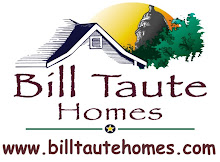The article below is a portion of the article in Builder Magazine, and the entire article can be seen at http://www.builderonline.com/local-markets/the-healthiest-housing-markets-for-2009.aspx?page=15. I have only included the top 5, instead of the top 15 markets in the nation here. It's good to be alive in Austin, Texas.
2008 total building permits: 26,145
In a year when permits declined 35 percent nationally, Dallas only experienced a 9 percent fall-off. With a population of 4.3 million, Dallas was the third largest home building market last year, as measured in permits pulled. Employers in Dallas, a popular place for corporate relocation and expansion, added 42,000 jobs last year, a growth rate of 2 percent. Existing-home prices have held steady, falling a paltry 3.4 percent in the last year. Interestingly, the face of residential construction has changed dramatically in Dallas in recent years; 58 percent of the activity last year was in multifamily, compared to a five-year average of 23 percent. The relative stability of the market, though, wasn't enough to prevent Wall Homes from filing for bankruptcy earlier this year. On the other hand, former Meritage co-CEO John Landon recently started a new Dallas-based home building company.
Busiest builders: D.R. Horton, Highland Homes, David Weekely Homes, K.Hovnanian Homes, Drees Custom Homes. Courtesy: Hanley Wood Market Intelligence.
2008 total building permits: 10,261
Busiest builders: D.R. Horton, K.B. Home, Centex Homes, Pulte Homes, Fieldstone Communities. Courtesy: Hanley Wood Market Intelligence.
2008 Total Building Permits: 10,388
Fort Worth, always operating in the shadow of higher profile Dallas, nevertheless can currently claim to have a slightly healthier housing market, based on its employment growth, relatively strong permit activity, and inexpensive housing. Now the 14th largest home building market in the country, Ft. Worth's builders pulled 10,388 permits last year, roughly two-thirds of them single-family. That may be half as many as 2005, but many other major markets showed much sharper drop-offs. The relative strength of the Fort Worth market in recent years stems from its ties to the oil and gas industries, which has fueled above-average job growth. The metro area added 17,300 jobs last year.
Busiest builders: D.R. Horton, Choice Homes, History Maker Homes, Meritage Homes, Centex Homes. Courtesy: Hanley Wood Market Intelligence.
2008 Total Building Permits: 14,250
Busiest builders: D.R. Horton, Lennar, KB Home, Centex Homes, Meritage Homes. Courtesy: Hanley Wood Market Intelligence.
1. Houston, Texas
2008 Total Building Permits: 42,697
They like to do things big in Houston. Now the metro area, home to more than 5.8 million people, can lay claim to being the largest home building market in the country, with 42,697 building permits. The market is still benefiting from an influx of population and jobs and rebuilding in the wake of Hurricane Ike. Employment was up 2.5 percent last year, representing the addition of an incredible 65,000 jobs. Home building activity in Houston has only fallen 31 percent since 2005. Also, existing-home prices rose in Houston through the first three quarters of last year. They finished the year at a median of $151,600, even with the previous year. Roughly one-third of the home building action is in Harris County, followed by Houston proper and Fort Bend County. One of Houston's largest builders, Royce Homes, shut down last year, and Kimball Hill, one of the biggest builders in Texas,
closed its doors this year after it failed to find a buyer.Busiest builders: Lennar, Perry Homes, David Weekley Homes, MHI/McGuyer Homebuilders, and KB Home. Courtesy: Hanley Wood Market Intelligence.







No comments:
Post a Comment